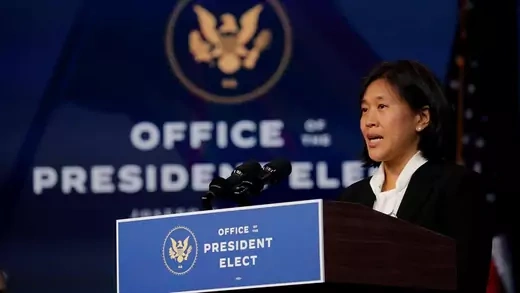
President Trump disrupted U.S. trade policy in the name of better deals. President-Elect Biden proposes a combination of stronger domestic investment and better coordination with allies.
President Donald J. Trump’s disruptive America First agenda was nowhere on greater display than in the realm of trade policy, where he launched a trade war with China, imposed tariffs on U.S. allies, and renegotiated major trade agreements.
More From Our ExpertsPresident-Elect Joe Biden has slammed Trump’s approach but likewise hammered China’s unfair practices and criticized unrestrained globalization. His “foreign policy for the middle class” promises no new trade talks until Washington undertakes massive domestic investments.
Trump took aim at a global trading system he said was rigged against U.S. interests and responsible for large trade deficits, declining U.S. manufacturing, and the offshoring of American jobs.
The World This WeekHis administration’s major moves included:
Withdrawal and disengagement. He withdrew from the Barack Obama administration’s Asia-Pacific trade deal, the Trans-Pacific Partnership (TPP), and halted talks on a comprehensive U.S.-European Union trade deal. He also crippled the World Trade Organization’s (WTO) dispute resolution body by blocking new appointments and threatened outright withdrawal.
More From Our ExpertsRenegotiation. He renegotiated the North American Free Trade Agreement (NAFTA) with Canada and Mexico, now known as the U.S.-Mexico-Canada Agreement (USMCA), as well as the U.S.-Korea Free Trade Agreement with South Korea. He also negotiated a limited deal with Japan, which his administration called a first step toward a broader agreement.
Tariffs. He applied broad tariffs on steel and aluminum from around the world, including Canada and Europe, which the administration argued was necessary on national security grounds to combat Chinese overproduction. He also imposed tariffs on some EU consumer goods and threatened them on EU auto imports.
China trade war. He entered into a protracted trade war with China that included tariffs on hundreds of billions of dollars worth of Chinese imports, economic retaliation from Beijing, and start-and-stop negotiations.
Talks with China eventually resulted in a “phase one” deal in which Beijing pledged to buy an additional $200 billion worth of U.S. agricultural products; so far it has not kept up that agreement. The bilateral trade deficit with China has held steady, even as the overall trade deficit has reached a fourteen-year high. The USMCA, meanwhile, passed with broad bipartisan support in Congress after Democrats negotiated stronger labor and environmental provisions.
During his presidential campaign, Biden sought to chart a course somewhere between Trump’s trade wars and an uncritical acceptance of free trade.
He hammered Trump’s go-it-alone approach, arguing that Washington must “write the rules of the road” on trade within the existing international system. He has long been a supporter of trade liberalization: as vice president he championed the TPP, and as a senator he voted for NAFTA and China’s entry into the WTO.

But he has also voted against trade deals that he saw as weak on workers’ rights and environmental protections, such as one with Peru in 2006. And some of his rhetoric on China echoes Trump’s, calling for “aggressive” retaliation against Beijing’s trade cheating.
The main difference is that Biden promises to unite with U.S. allies, such as the EU, in a common front against China. But with Biden making no promises on ending existing tariffs on EU products, that could be a challenge. A recent EU-China investment treaty could also undermine Washington’s coordination with Brussels.
This is Biden’s slogan for an approach to foreign affairs that will purportedly measure any policy by what it does for middle-income families. The approach is fleshed out in a recent report coauthored by Biden’s pick for national security advisor, Jake Sullivan.